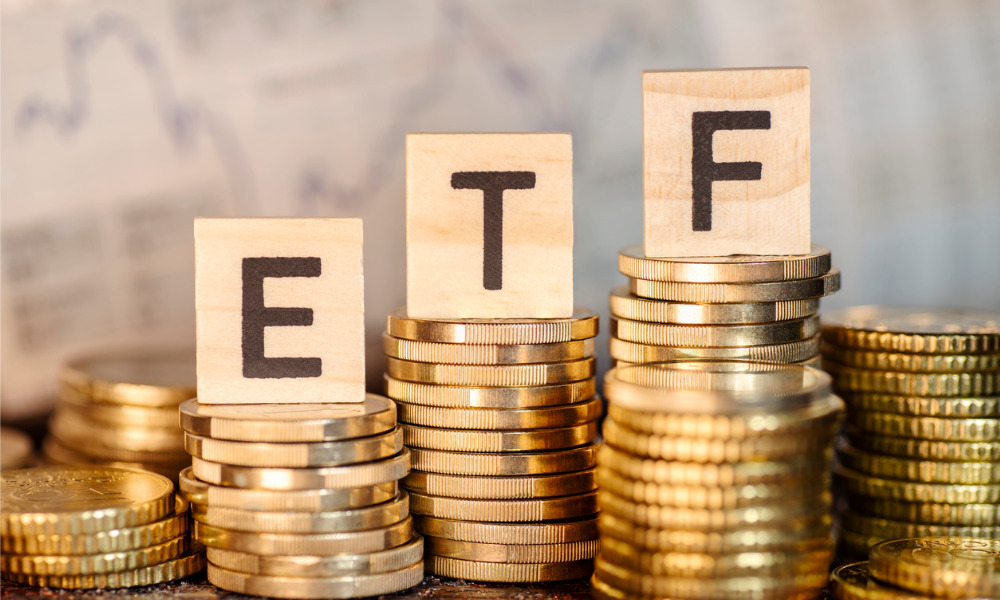

The global exchange-traded funds market was worth $7.3 trillion at the end of the second quarter, a rise of 5.8% from the previous quarter, thanks to inflows of $136.6 billion and market appreciation worth $265 billion.
Inflows included $89 billion to equity strategies, $45.9 billion to fixed income and $1.9 billion to other categories. The total for the quarter was roughly in line with the second quarter of 2020.
But where do ETF specialists from Vanguard see the market going in the months ahead, given that the Fed is showing signs of slowing rate hikes, which is tempting investors back to risk assets?
A new report written by the investment manager’s Samuel Martinez, head of fixed income product, Cassandre Juste, head of index equity product, and David Sharp, senior ETF capital markets specialist, highlights the gains for equity products as the S&P 500 returned 8.7%, while fixed income was dampened, likely by the expectation of an easing of rate hikes.
The rise for equity strategies was significant, 75% higher than in the first quarter, and marked a flip back to equities from the fixed-income ETFs that dominated in the first three months of 2023. Large cap tech stocks were the main driver and U.S. funds were easily the focus, with $63.7 billion inflows.
For fixed income, a notable trend was outflows from short-dated bond ETFs and inflows into intermediate funds.
Vanguard’s experts also reaffirm the importance of actively managed ETFs, taking a 5.8% share of industry assets at the end of Q2 (up from 5.6% at the end of Q1) and accounting for 130 or the 189 new ETF launches in the first half of 2023.
By asset type, 9.6% of fixed-income ETF cash flow and 18.9% of equity ETF cash flow in the second quarter went to actively managed funds. For the year-to-date, these percentages rise to 8.3% and 32.6% respectively.
The ETF industry’s long-term growth is continuing amid a widening ecosystem and lower volatility, which is in turn helping to keep fees low for investors.
“ETF investors should not shy away from initiating positions or rebalancing existing ones, as maintaining disciplined, long-term asset allocation has historically been the biggest driver of returns,” the report states.
However, it notes that investors should be aware of the impact of certain events on ETF spreads, such as the Fed announcing a rate change. Trading when such events widen spreads is best avoided, Vanguard’s experts suggest.
The report also suggests considering how diversification through international fixed-income ETFs could be a valid strategy, with many jurisdictions not yet at the peak of their rate increases.

Former Northwestern Mutual advisors join firm for independence.

Executives from LPL Financial, Cresset Partners hired for key roles.

Geopolitical tension has been managed well by the markets.

December cut is still a possiblity.

Canada, China among nations to react to president-elect's comments.
Streamline your outreach with Aidentified's AI-driven solutions
This season’s market volatility: Positioning for rate relief, income growth and the AI rebound
